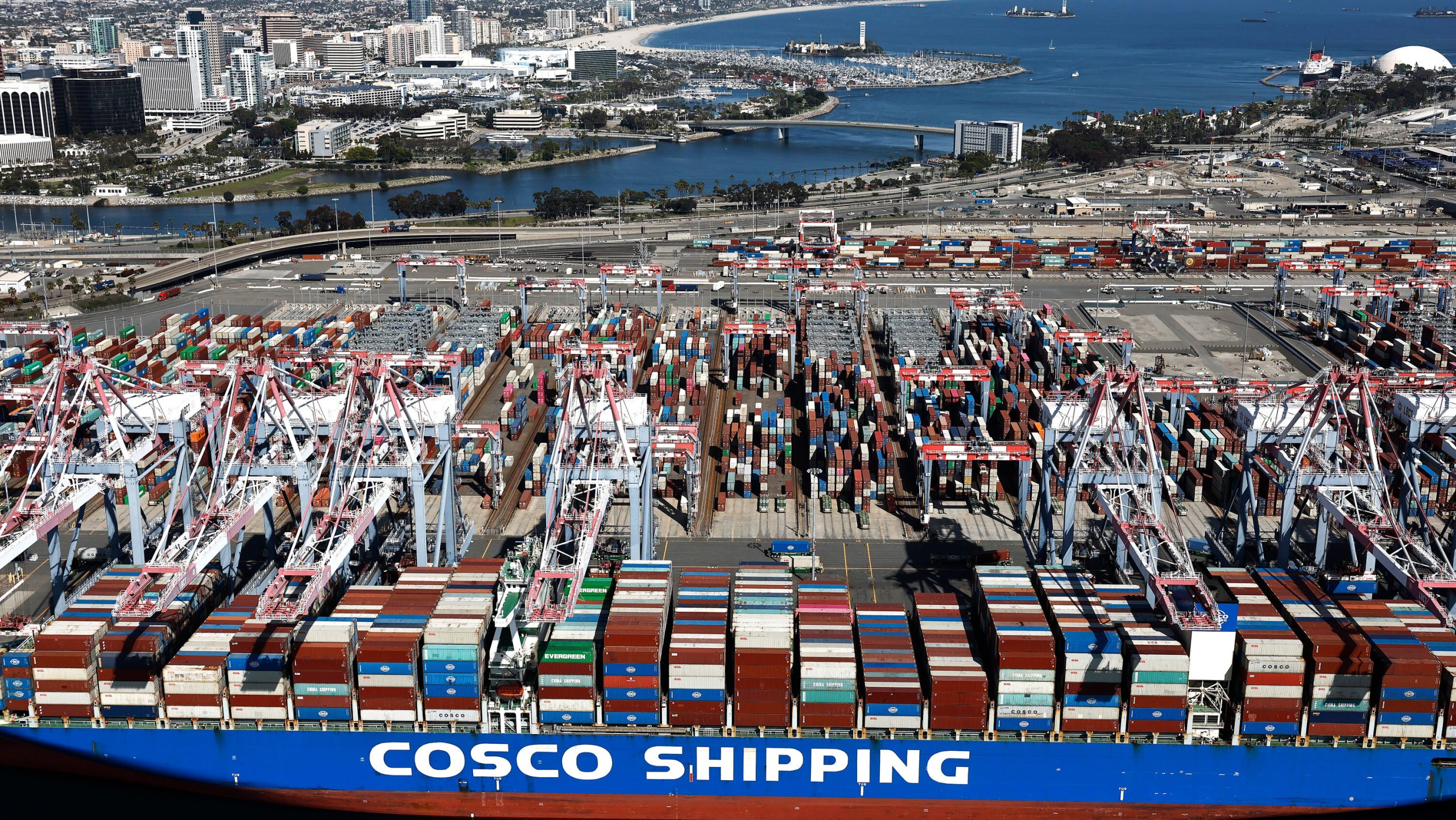The trade war initiated by US President Donald Trump intensified on Wednesday as both China and the European Union unveiled retaliatory tariffs on American goods, triggering renewed market volatility.
Trump’s latest round of tariffs, which affected numerous trading partners, came into effect earlier on Wednesday.
In response to the retaliatory measures, Trump posted on his Truth Social platform: “BE COOL! Everything is going to work out well. The USA will be bigger and better than ever before!”
In one of the most significant tests of China-US relations in recent decades, Trump increased the tariffs on Chinese goods to 104 per cent, following Beijing’s announcement of retaliatory measures.
Initially, China had planned to impose a 34 per cent tariff on US imports starting at 1601 GMT on Wednesday, but after Trump’s tariff hike, Beijing raised its tariff to 84 per cent.
China’s Ministry of Finance condemned the move, calling it a “severe infringement” on China’s rights and an attack on the multilateral trade system.
In addition to tariff hikes, China blacklisted six American artificial intelligence companies, including Shield AI and Sierra Nevada Corp.

Meanwhile, the European Union announced retaliatory tariffs on more than 20 billion euros worth of US products, including soybeans, motorcycles, and beauty products, set to begin on April 15. These measures are in response to the US’s tariffs on global steel and aluminium exports, imposed last month.
“The EU considers US tariffs unjustified and damaging, causing harm to both sides and the global economy,” the European Commission stated, adding that the countermeasures could be suspended if the US agrees to a fair negotiation.
The EU is still working on its response to the 20 per cent tariff on US goods, which went into effect on Wednesday.
US officials have warned countries against retaliation, with Treasury Secretary Scott Bessent advising, “If you don’t retaliate, the levels announced last Wednesday are a ceiling.”
Bessent further cautioned nations that aligning with Beijing would be “cutting your own throat,” accusing China of unfair trade practices like excess production and “dumping” cheap goods onto foreign markets.
Trump remains convinced that his tariff strategy will revitalise American manufacturing by forcing companies to relocate to the US.
He urged businesses to move to America, citing companies like Apple as examples, while posting, “This is a GREAT time to move your COMPANY into the United States. DON’T WAIT, DO IT NOW!”
However, many economists and business experts have raised concerns about the feasibility and long-term effects of such a strategy, warning that it could contribute to rising inflation.
The escalating trade war has caused significant market turmoil, wiping out trillions of dollars in value.
On Wednesday, Wall Street saw mixed results, with major indexes posting gains in early trading, while European markets plunged by around three per cent in the afternoon. Tokyo’s Nikkei index closed nearly four per cent lower.
The US dollar weakened against major currencies, and oil prices dropped below $60 per barrel, their lowest level in four years. Bond yields in the US, Japan, and Britain saw an increase, signalling growing concerns over the global economic outlook.
The Bank of England expressed concerns about the risks to UK financial stability due to the rising geopolitical tensions, including the fallout from US tariffs.
Meanwhile, Italy has been forced to halve its 2025 growth forecast, and Spain is expected to downgrade its economic outlook as well.
Trump has maintained that his administration is working on “tailored deals” with its trading partners, prioritising allies such as Japan and South Korea, which have been subjected to tariffs of 24 per cent and 25 per cent, respectively.
Trump’s trade representative, Jamieson Greer, revealed that countries like Argentina, Vietnam, and Israel had offered to reduce their tariffs.
During a Republican dinner on Tuesday, Trump claimed that many nations were “dying” to strike a deal, adding, “These countries are calling us up, kissing my ass.”
Trump also indicated that the US would soon announce a major tariff on pharmaceuticals, causing a significant drop in shares of pharmaceutical companies.


 Trending
Trending 